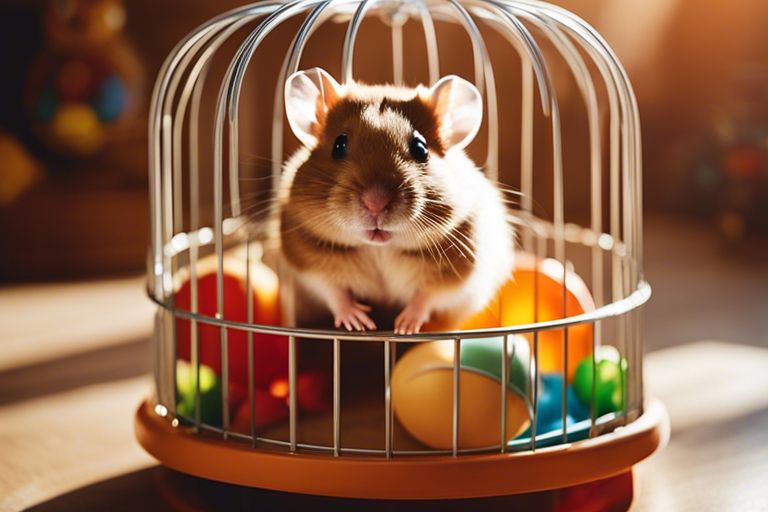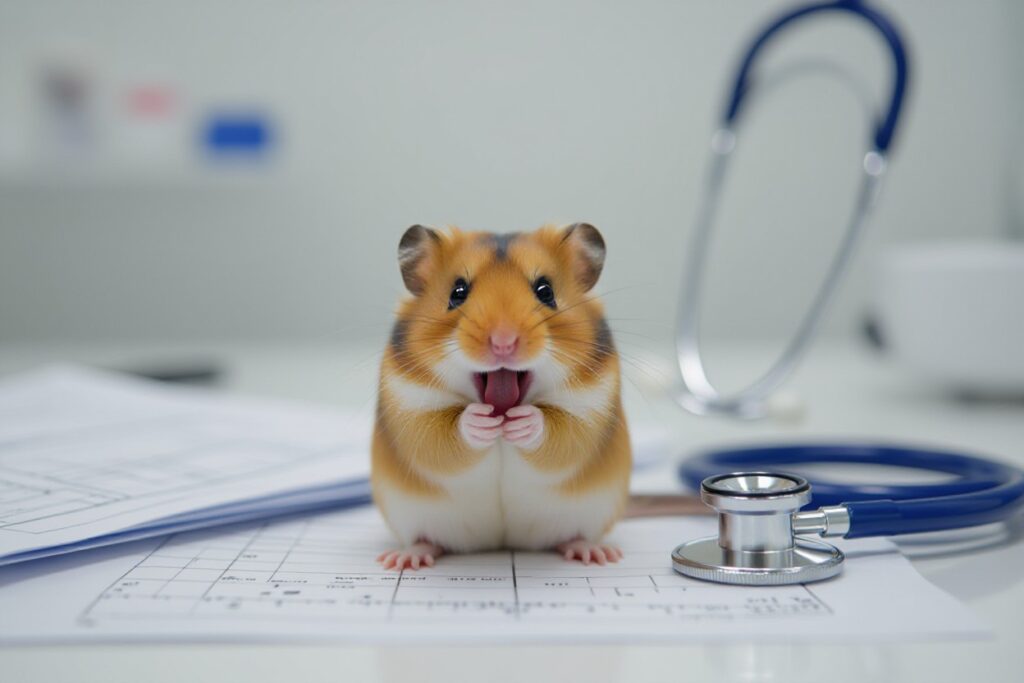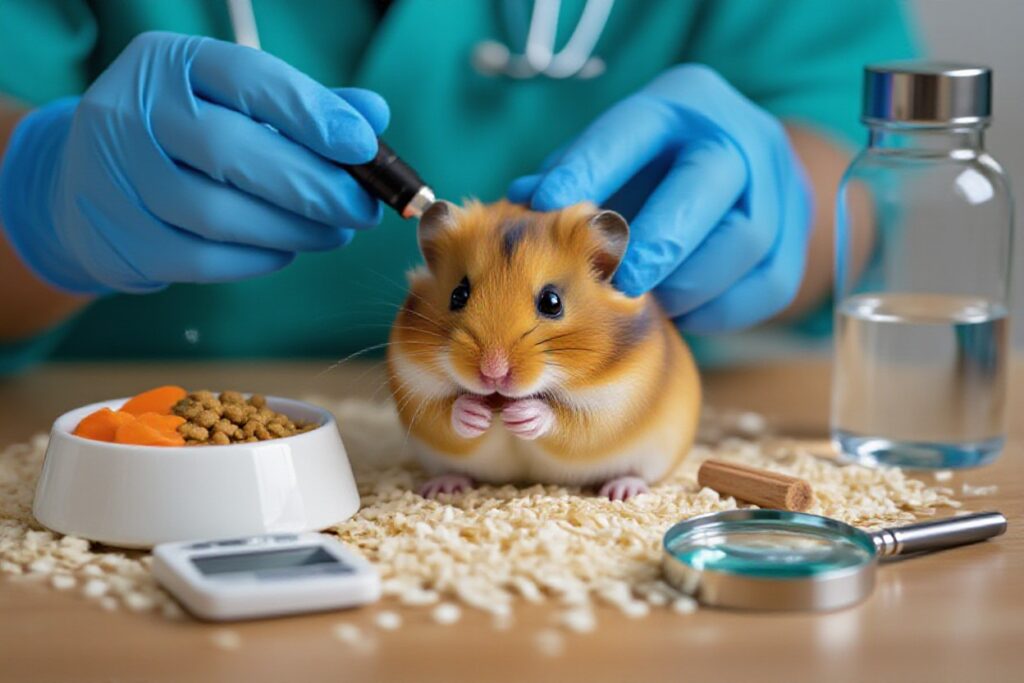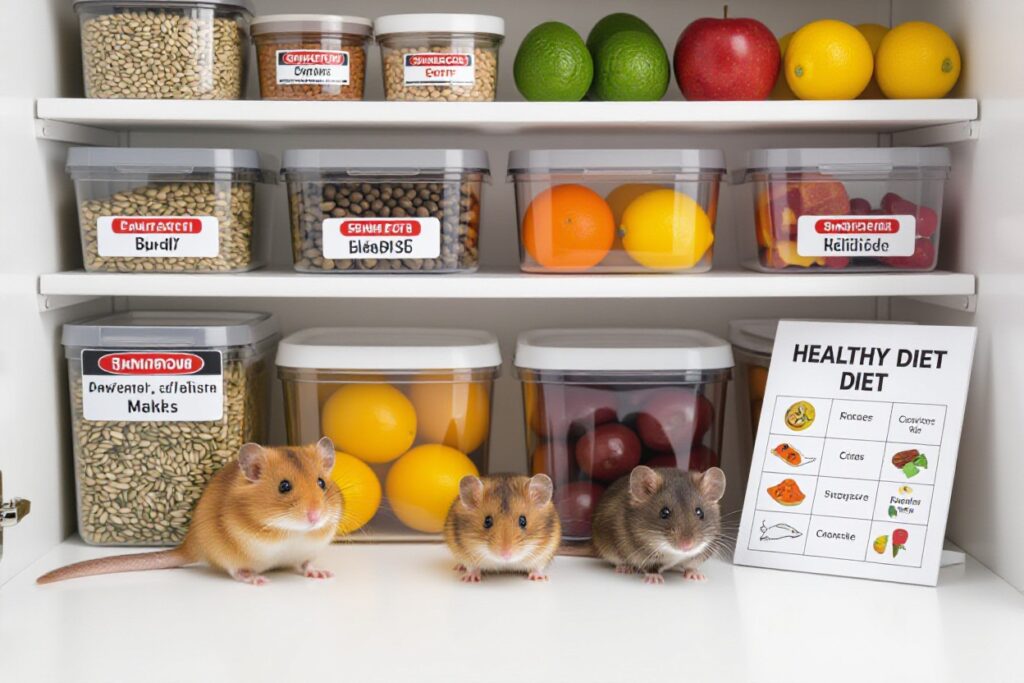Happy hamsters are healthy hamsters! Ensuring the well-being of your furry friend involves more than just providing food and water. In this guide, we will cover vital tips and practices to maintain your hamster’s health and happiness. From creating a suitable living environment to offering a balanced diet and engaging in regular playtime, these strategies will help you be a responsible and loving hamster owner.
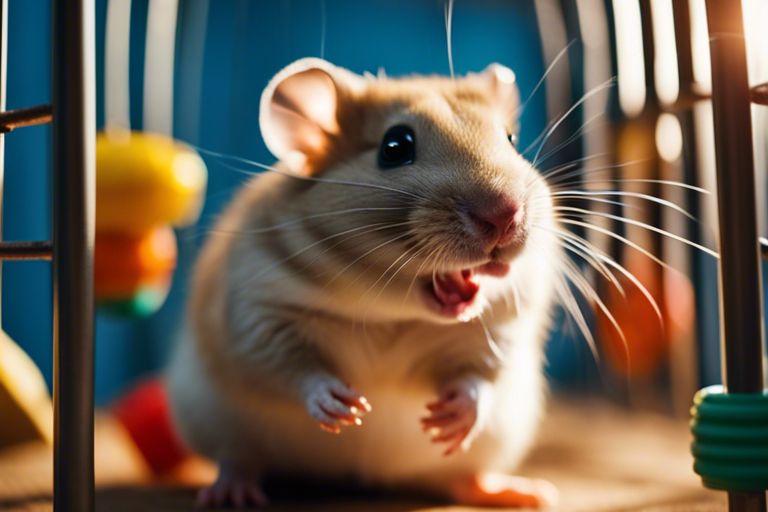
Creating a Comfortable Habitat
Choosing the Right Cage
Choosing the right cage for your hamster is crucial in providing a comfortable and safe living space. Opt for a cage that is well-ventilated, spacious, and escape-proof. Wire cages with solid bottoms are recommended as they allow for proper air circulation and prevent your hamster from escaping. Avoid aquarium tanks or plastic cages as they may not provide adequate ventilation.
Essential Accessories for Your Hamster’s Home
One of the imperative accessories for your hamster’s home is a sturdy exercise wheel. Hamsters are active creatures that need plenty of exercise to stay healthy and happy. Ensure the exercise wheel is the right size for your hamster to prevent any injuries. Other necessary accessories include a water bottle, food bowl, nesting material, and chew toys to keep your hamster entertained and engaged.
This will create a stimulating environment for your hamster, promoting physical and mental well-being. Make sure to clean and replace accessories regularly to maintain hygiene and prevent any health issues for your furry friend.
Hamster Nutrition and Diet
Essential Nutrients for Hamsters
If you want to ensure your hamster stays healthy and happy, it’s crucial to provide a balanced diet that meets their specific nutritional needs. The necessary nutrients for hamsters include protein, fat, fiber, vitamins, and minerals. These nutrients play a vital role in maintaining your furry friend’s overall health and well-being.
Tips for Feeding Your Hamster
Regarding feeding your hamster, it’s important to choose a high-quality hamster food that is specifically formulated for their dietary requirements. Avoid feeding them only sunflower seeds or peanuts, as these can be high in fat and lead to obesity. Instead, opt for a mix of pellets, grains, seeds, nuts, fruits, and vegetables to ensure they receive a well-rounded diet.
- Provide fresh water daily in a sipper bottle to keep your hamster hydrated.
- Monitor your hamster’s food intake and adjust the quantity as needed based on their activity level and weight.
- Introduce new foods gradually to prevent digestive issues.
After all, your hamster’s diet plays a crucial role in their overall health and happiness. By following these tips, you can ensure that your furry friend receives the nutrition they need to thrive.
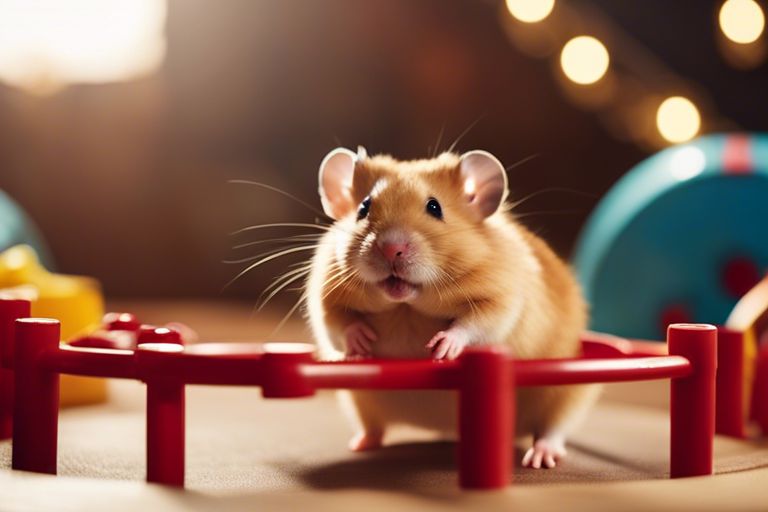
Exercise and Stimulation
The Role of Exercise Wheels and Balls
To keep your hamster healthy and happy, it is vital to provide them with opportunities for exercise and stimulation. Hamsters are active creatures that need outlets for their energy, and exercise wheels and balls can be great tools for this. Wheels allow hamsters to run and stay active, while balls provide a safe way for them to explore their environment outside of their cage.
Providing Enrichment Through Toys and Activities
Clearly, exercise wheels and balls are just the beginning when it comes to keeping your hamster engaged. Providing a variety of toys and activities can help prevent boredom and promote mental stimulation. Consider offering chew toys, tunnels, and even puzzle feeders to keep your furry friend entertained and mentally sharp.
Additionally, rotating toys regularly can help prevent your hamster from getting bored of their environment. Introducing new toys, switching up their placement, and incorporating new activities into their routine can all contribute to a happy and healthy hamster.
Routine Health Care
Recognizing Signs of Illness
Now, it is important for every hamster owner to be vigilant and observant when it comes to the health of their furry friend. Some common signs of illness in hamsters include lethargy, loss of appetite, weight loss, diarrhea, and difficulty breathing. If you notice any of these symptoms, it is crucial to seek prompt veterinary care to ensure the well-being of your pet.
Preventive Measures and Regular Check-ups
Now, preventive measures are key to keeping your hamster healthy. Make sure your hamster has a clean and spacious living environment, a well-balanced diet, and access to fresh water at all times. Regular check-ups with a qualified exotic animal veterinarian can help detect any health issues early on and prevent potential problems down the line. These check-ups are also a great opportunity to discuss any concerns or questions you may have about your hamster’s health.
With proper care and attention, you can ensure that your hamster lives a long and happy life. Be mindful of, prevention is always better than cure when it comes to your pet’s health!

Socialization and Handling
Taming Your Hamster
All hamsters require some level of taming to become comfortable with human interaction. Start by offering treats from your hand and speaking softly to your hamster. Gently handling your hamster for short periods daily can help them get accustomed to being held.
Do’s and Don’ts of Hamster Interaction
Hamster interaction can be a rewarding experience for both you and your furry friend, but it’s vital to know the do’s and don’ts. Do wash your hands before handling your hamster to remove scents that might scare them. Don’t wake your hamster abruptly from sleep or handle them roughly.
This will only cause stress and potentially lead to defensive behavior. Additionally, avoid picking up your hamster by their tail as it can cause injury. Always approach your hamster calmly and give them time to adjust to your presence before attempting to handle them.
Concluding Thoughts
Monitoring Your Hamster’s Health and Behavior
Despite their small size, hamsters are resilient creatures capable of hiding illnesses well. Any sudden changes in eating habits, water intake, activity levels, or other behaviors should be closely monitored as they could be early signs of health issues. Regularly observing your hamster’s behavior and conducting health checks can help ensure they stay happy and healthy.
Final Words on Fostering a Joyful Environment
Final consideration for a happy hamster is creating an enriching environment. Providing a variety of toys, tunnels, and hiding spots will keep your hamster engaged and prevent boredom. Final thoughts emphasize the importance of a stress-free and stimulating environment to promote your hamster’s overall well-being.
For instance, incorporating a running wheel in your hamster’s habitat allows them to engage in physical activity and prevents obesity. It’s crucial to create a space where your hamster can exhibit natural behaviors, socialize, and remain mentally stimulated.
FAQ
Q: Why is it important to keep my hamster healthy and happy?
A: Keeping your hamster healthy and happy is important for their overall well-being and longevity. A happy hamster is less stressed, which can help prevent illnesses and behavioral issues.
Q: What should I feed my hamster to keep them healthy?
A: A balanced diet is vital for your hamster’s health. Provide a good quality hamster food mix, fresh vegetables, and occasional treats like fruits or seeds. Make sure to always have fresh water available.
Q: How can I ensure my hamster gets enough exercise?
A: Hamsters need plenty of exercise to stay healthy and happy. Provide a large enough cage with a wheel for running, tunnels for exploring, and toys for enrichment. You can also let your hamster have supervised playtime outside of the cage in a safe, enclosed area.
Q: How often should I clean my hamster’s cage?
A: Regular cage cleaning is crucial to maintaining your hamster’s health. Spot clean the cage daily by removing any wet spots or uneaten food. A full cage clean should be done at least once a week, changing bedding and washing accessories with hot, soapy water.
Q: What are signs that my hamster may be unwell?
A: Watch for signs of illness in your hamster, such as changes in eating or drinking habits, lethargy, unkempt fur, weight loss, or discharge from the eyes or nose. If you notice any of these signs, consult a veterinarian experienced with small animals immediately.
